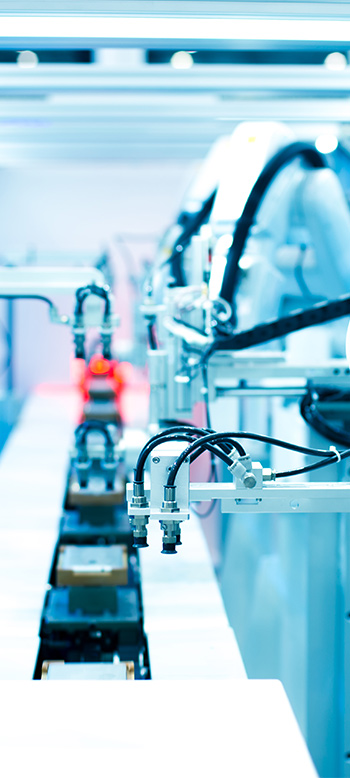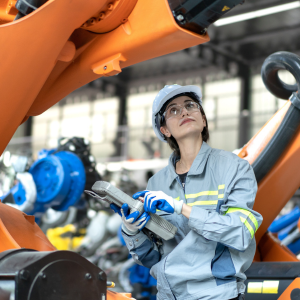Industry 4.0: The Rise of
Artificial Intelligence
Post By: Ryan King On: 13-09-2018 - Industry 4.0 - Industry Trends - Manufacturing
Manufacturers are divided in their opinion about the adoption of AI and how it will impact the world as we know it. But the world as we know it at Rowse already reflects the impact of AI, as more and more of our lives are connected with the IoT (Internet of Things). In the IIoT (Industrial IoT), machine-learning algorithms build knowledge incrementally into big data sets, with increasingly complex industrial applications.
What is Artificial Intelligence?
Artificial Intelligence is broadly defined as the simulation of human intelligence by machines, particularly as constructed by complex computer systems. Many processes of human cognition and reasoning can be simulated by computer coding, and by the development of logarithms that carry out tasks independently of their base programming. These include essential learning (acquiring information and the rules for using it), self-correction (recognising mistakes and rectifying them), and reasoning. Reason simply means applying certain rules in order to reach a conclusion (rightly or wrongly). AI therefore represents a new form of intelligence, some may say a higher form, but one which can perform much faster and more efficiently.
AI is already performing tasks in the following areas:
- Information Processing
- Learning from Data
- Navigation and Movement
- Planning and Exploring Routes
- Object Handling and Control
- Machine Vision (camera, x-ray and laser)
- Speech Recognition/Generation
- Natural-Language Processing

How is Artificial Intelligence Impacting Industries?
Industry 4.0 denotes the Fourth Industrial Revolution. This is the latest step in human progress where artificially intelligent systems co-ordinate automated production industries. Today, a web of connected applications are all talking to each other, in order to streamline everything from timescales to labour costs. This doesn't mean that the human workforce will be replaced with robots, but is a more complicated evolution of the way we apply the processing capacity of machines.
One of the big changes will involve factory automation. While programmable logic controllers and distributed control systems have already begun to impact manufacturing, most machinery and processes still run on a rules-based approach. Robots are used successfully for a range of warehouse tasks that include picking, packing and palletising, but these kind of bots are programmed to address only a fixed range of activities. Artificially intelligent systems will be able to make their own decisions in response to unexpected or unfamiliar situations, making technical systems more flexible.
Industry 4.0 is a wake-up call for manufacturers who are suddenly faced with a paradigm shift in the design and operation of their production processes. This poses a number of major challenges, not least of which are the financing of plant conversion, and finding people with the right IT skills to manage the new systems. Mechanical engineering will move over as software engineering becomes more important, introducing smart systems that can analyse and assess big data sets. Much of this data can be optimised by the machines themselves, as they learn progressively how to identify faults and correct them, or to evaluate optimal design options. In automated processes, AI can streamline systems, by using visual recognition to identify the underlying causes of quality issues, and predictive reasoning to identify potential machine failures.
Many see this as a trend towards customer-driven and customised production, as constant input from data streams identifies customer (dis)satisfaction and alters the product requirements accordingly. AI is poised to transform production processes all the way along the value chain, from procurement and supply chain management to engineering and industrial operations. This will cut down on waste and improve productivity, increasing overall business efficiency. In the wider scope of the business, it will also involve data analysis of production, sales and marketing information, which will help the business become more efficient and profitable.

Get More From Rowse Straight To Your Inbox




